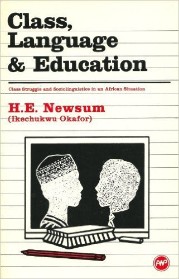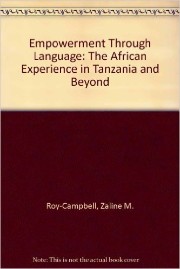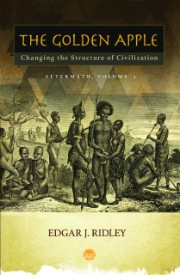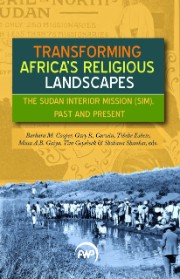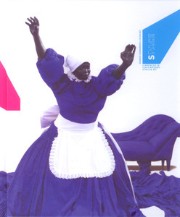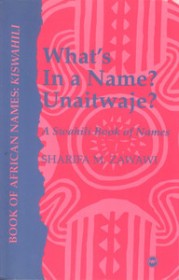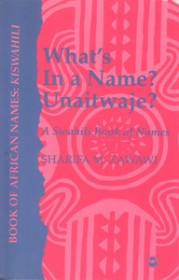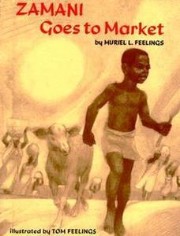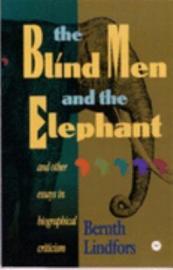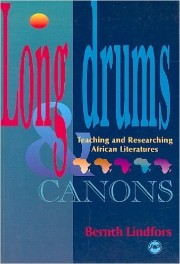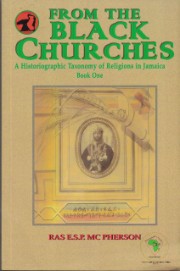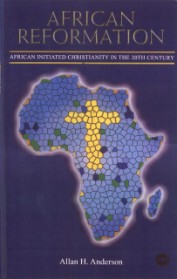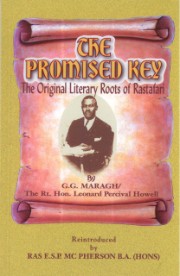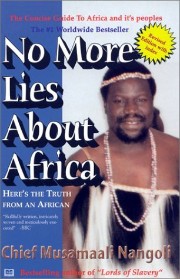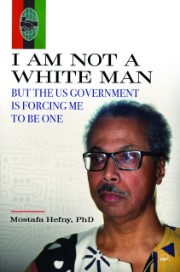Search results: 217 results found.
CLASS, LANGUAGE AND EDUCATION: Class Struggle and Sociolinguistics in an African Situation
Africa World Press
Purchase - USD29.95
ISBN N/A
English
Year Published 2019
| Bookmark
Class, Language and Education is a discussion about complex social forces that shape society and are responsible for the divisiveness and antagonism in a class system. The author's analysis supports Basil Bernstein's (1972) observation that "One of the effects of the class system is to limit access to elaborated codes." According to Newsum, mainstream educationalists and linguists associate abstract thinking and the linguistic self-sufficiency of the message to users of "elaborated codes (i.e., the educated and well-to-do class), and cognitive poverty to users of "restricted codes (i.e., the underclasses and the downtrodden).
"A great advancement in social-linguistics and the philosophy of language. Newsum provides us with a remarkable demonstration of the fact that language is a social phenomenon, as he effectively analyzes the relationship between power and language. The dominant class creates, uses, and controls language to maintain their position of dominance, their
EMPOWERMENT THROUGHOUT LANGUAGE: The African Experience—Tanzania and Beyond
Africa World Press
Purchase - USD84.95
ISBN N/A
English
Year Published 2019
| Bookmark
This book seeks to enter the crucial debate on educational language choices in Africa which began with the arrival of missionaries and took varied forms over the years. In her book, Roy-Campbell examines the link between the languages of instruction in former colonies and the kind of knowledge produced in the schools. She explores issues such as who decides which language should be the medium of instruction in schools, the criteria for this decision, and the implications of this decision for knowledge production and reproduction
Tanzania is the primary focus of this discussion. It provides the illustration of a multilingual country, which nearly 30 years ago legislated the use of a local language as the language of instruction throughout primary school level. Yet, it continues to use a foreign language as the main language of post-primary school education. The importance of the Tanzania experience resides in its enormous efforts towards decolonizing the language of instruction. Insigh
Purchase - USD19.95
ISBN N/A
English
Year Published 2019
| Bookmark
This book, the third in the author’s series examining the impact of symbols on human behavior, boldly corrects the record on the interpretation of James George Frazer’s classic work, The Golden Bough. Frazer presented how symbolism affects humanity from beginning to end, and Edgar Ridley author takes on Frazer’s critics, such as A.B. Cook and Theodore Gaster.
In this volume, the author reminds the reader that symptomatic thought and behavior have shaped every aspect of the genome and has controlled how genes operate throughout the world. Our understanding of genetics and its importance in human life and the changes that we have made throughout the world is based on the event of what the author labels the ‘neurological misadventure of primordial man’. This book describes how Symptomatic behavior and the dynamics of symbolic behavior is the cause of how genes operate in our bodies and how they express themselves in who we are and how we beh
TRANSFORMING AFRICA'S RELIGIOUS LANDSCAPES: The Sudan Interior Mission (SIM), Past and Present
Africa World Press
Purchase - USD39.95
ISBN N/A
English
Year Published 2019
| Bookmark
This book tells the story of the collaborative efforts of missionaries of the SIM, an international Christian mission founded in North America, and African Christians to evangelize in the wider Sudan (generally meaning countries spanning from Senegal to Ethiopia). In 1893, when SIM was formed, the Sudan—home to Islam, the Ethiopian Orthodox Church, and African traditional religions—had seen little Protestant Christian evangelism. Within ten years, most of the region came under the yoke of European imperialism, and, over the next several decades, missionaries flooded this little-touched mission field. Yet the story of the SIM, perhaps the most widely active mission in the Sudan, stands apart because it was not attached to any imperial power or state church, such as the Church Missionary Society of the Anglican Church. The SIM was an interdenominational society sending missionaries from North America, Australia, and various European countries to the Sudan.
This book is the f
SPACE: Currencies in Contemporary African Art
Africa World Press
Purchase - USD59.95
ISBN N/A
English
Year Published 2019
| Bookmark
This is a catalogue of artworks and essays that formed the exhibition Space: Currencies in Contemporary African Art. Curated by Thembinkosi Goniwe and Melissa Mboweni, the exhibition was held at museum Africa in Newton, Johannesburg from 11th May to 11th July 2010.
Space featured 25 artists, 4 art collectives and 6 writers whose work provided creative and intellectual dialogue, which in personal and intimate ways animates imaginative and reflective engagement with social matters and human experiences in contemporary Africa and the Diaspora.
Contributors include Simon Njami, Abebe Zegeye, Bettina Malcomess, Jimmy Oganga, Raphael Chikukwa and Monica Arac de Nyeko.
Some of the featured artists include William Boshoff, Berni Searle, Barthelemy Toguo, Berry Bickle, Mary Sibande, David Koloane, Godfried Donker, Nandipha Mntambo, Dominique Zinkpe, Miriam Syowia Kyambi and Billie Zangewa. Collectives include El Hassan Echair and Imad Mansour of Collectif 212,
Purchase - USD29.95
ISBN N/A
English
Year Published 2019
| Bookmark
Most books about African names have included in their discussions names used by Swahili speaking people but the present books is different. It is mostly about the personal names used by the Waswahili people and tells of the meanings these names have. The Waswahili are identified as those people who speak Kiswahili (of any dialect) as their first language and share in its culture. These comprise African people and people of African descent, of different tribal and ethnic identities, who have a common language and culture. In this book, I have included names with which I am well acquainted, some which relatives and friends have suggested to me, and some that I have come across in my reading of Swahili literature.You will find listed African indigenous Biblical and Islamic names all of which are in use in East Africa today. Many of them represent a lexicon that could be used by different people irrespective of their religion or ethnic group. Many of the religious or historical names sugge
Purchase - USD29.95
ISBN N/A
English
Year Published 2019
| Bookmark
Most books about African names have included in their discussions names used by Swahili speaking people but the present books is different. It is mostly about the personal names used by the Waswahili people and tells of the meanings these names have. The Waswahili are identified as those people who speak Kiswahili (of any dialect) as their first language and share in its culture. These comprise African people and people of African descent, of different tribal and ethnic identities, who have a common language and culture. In this book, I have included names with which I am well acquainted, some which relatives and friends have suggested to me, and some that I have come across in my reading of Swahili literature.You will find listed African indigenous Biblical and Islamic names all of which are in use in East Africa today. Many of them represent a lexicon that could be used by different people irrespective of their religion or ethnic group. Many of the religious or historical names sugge
Zamani Goes to Market
Africa World Press
Purchase - USD16.95
ISBN N/A
English
Year Published 2019
| Bookmark
It was cool in the early morning. The sun spread a soft light over the family compound of five huts. Zamani was wide awake. He had slept little that night; he was too excited. Today, for the first time, he would go to the market with Father and his older brothers!"This is the touching story of a young boy's first trip to the market with his father and older brothers. Zamani learns about the various items sold at the market, and how to bargain and pay for them. Zamani buys a gift for his Mother and surprises her when he returns home. Later that day Zamani receives a surprise gift as well, bring a wonderful end to hist first day at the market.
THE BLIND MEN AND THE ELEPHANT: And Other Essays in Biographical Criticism
Africa World Press
Purchase - USD79.95
ISBN N/A
English
Year Published 2019
| Bookmark
In an intellectual climate dominated by formalistic theoretical concerns, biographical criticism may seem an unfashionable mode of academic discourse, but it is sorely needed when writers and readers hail from different countries. A text may be so completely conditioned by its indigenous environment that it cannot be adequately grasped or appreciated without some knowledge of its creator and the circumstances that prompted its creation. Biographical criticism, by studying the human face behind the text, may thus assist us in the larger task of reading our fellow man.
Included among those individuals whose lives and works are examined here are Chinua Achebe, Dennis Brutus, Cyprian Ekwensi, Ngugu wa Thiong'o, Wole Soyinka, Amos Tutuola, Janheinz Jahn and Sartjee Baartman.
LONG DRUMS AND CANONS
Kamagezi
Purchase - USD16.95
ISBN N/A
English
Year Published 2019
| Bookmark
This collection of essays addresses questions pertinent to the teaching of the relatively new discipline surrounding the teaching and researching of African literature. A valuable resource for both researchers, lecturers and students, it examines current practices, considers which material and writers should be studied, and considers how academic programs can be structured.
FROM THE BLACK CHURCHES
Africa World Press
Purchase - USD12.95
ISBN N/A
English
Year Published 2019
| Bookmark
Man's religion is something that we cannot eliminate from his system or destroy in him; therefore, it is folly for any man to go about attacking another man's religion, because to him it is fundamental. You may be a Christian; you may be Muhamadan; that is your religion.
AFRICAN REFORMATION: African Initiated Christianity in the 20th Century
Africa World Press
Purchase - USD99.95
ISBN N/A
English
Year Published 2019
| Bookmark
African Reformation provides an overview of African initiated churches (AICs) in different parts of Sub-Saharan Africa, examining the reasons for the emergence and growth of churches that have resulted from the interaction between Christianity and African pre-Chrisitan religions. It describes the characteristics of different types of churches and the lessons they teach the universal church. Concise histories, teachings, beliefs, and practices of representative churches in different African countries and their significance for world Christianity are examined. Different kinds of AICs are discussed, from the earliest "Ethiopian" and "African" churches that emerged at the end of the nineteenth century to the later, more prolific"prophet-healing" and "spiritual" churches, the main focus, and the most recent "new Pentecostal" or "Charismatic" churches have have developed since 1970. The reasons for the emergence, development and growth of AICs in the twentieth century is considered. Much of
THE PROMISED KEY
Africa World Press
NO MORE LIES ABOUT AFRICA: Here's the Truth from an African
Africa World Press
Purchase - USD14.95
ISBN N/A
English
Year Published 2019
| Bookmark
Easily the most provocative book ever written about Africa by an African. For the first time, an African, like no one else is best qualified to confront the myth, the lies and the propaganda, employed by the foes of Africa, in the attempt to ridicule the continent and her peoples.
I Am Not a White Man but the US Government Is Forcing Me to Be One
Africa World Press
Purchase - USD84.95
ISBN N/A
English
Year Published 2019
| Bookmark
Can a professional man, whose only crime is asserting his Nubian/African identity, and a refusal to be classified as “white” be persecuted, and become the subject of harassment facing financial and mental ruin?
The author of this book, Dr. Mostafa Hefny, is of Egyptian, Nubian/African origin, whose self-identity and assertion that he should not be classified as a white man in United States legal and professional papers has caused him innumerable social, mental and professional harm and suffering.
Dr. Hefny, who is a naturalized American citizen, came to the US in 1978 and became a U.S. citizen in 1985. He has a PhD in Education from Wayne State University in Detroit, Michigan, U.S.A. He was a bilingual resource teacher with Wayne County Regional Education Service Agency for thirteen years.
As a learned and proud Nubian/African, with an affirmative self-awareness, Dr. Hefny challenged a system that immediately classified him as a white man, purely because he

